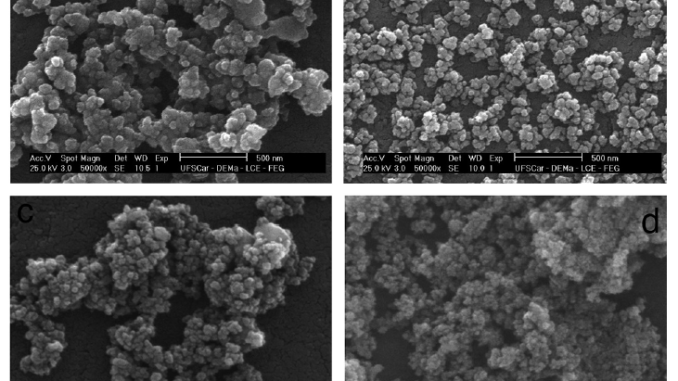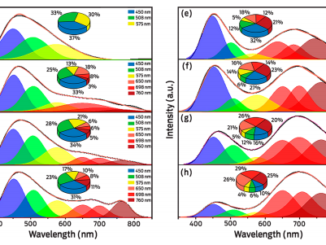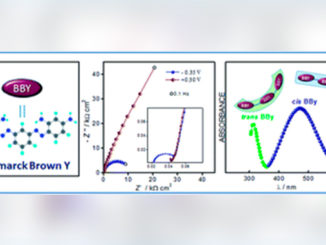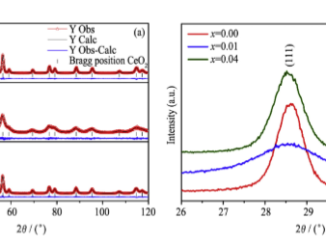
Microwave Assisted Combustion Synthesis and Characterization of Nanocrystalline Nickel-doped Cobalt Ferrites
Abstract: Nanoparticles nickel-doped cobalt ferrites [NixCo1-xFe2O4 (x = 0.0, 0.25, 0.50, 0.75 and 1.0 of Ni2+)] were prepared by the microwave combustion synthesis, using a stoichiometric mixture of metal nitrates and urea as the oxidizer and fuel to drive the reaction. The effect of microwave irradiation on the phase composition was favorable to promote the formation of fluffy foams and nanoparticles sizes. The fast internal heating with microwaves leads to a reduction in synthesis time, to only 2 min. The structural, chemical and magnetic properties of the nickel-doped cobalt ferrites were analyzed by XRD, TEM, SEM and BET. The XRD results confirmed the formation of pure and single-phase spinel structure. The crystallite size of the nanoparticles was in the range of 38 -50 nm. SEM images show nanoparticles with spherical shape and homogenous morphology. The TEM analysis shows necked near-spherical particles with an average size of similar to 30 -50 nm, reflecting the highly crystalline nature of these nanoparticles. The magnetic measurements of all the samples were recorded using vibrating sample magnetometer (VSM) at room temperature in 10 kOe. Increasing the nickel content directly affects the structural characteristics of the particles, causing a reduction in the coercive field.
Author(s): de Freitas, MR; de Gouveia, GL; Dalla Costa, LJ; de Oliveira, AJA; Kiminami, RHGA.
MATERIALS RESEARCH-IBERO-AMERICAN JOURNAL OF MATERIALS
Volume: 19 Issue: 27-32 Published: 2016
PDF: Microwave Assisted Combustion Synthesis and Characterization of Nanocrystalline
DOI: 10.1590/1980-5373-MR-2016-0077




